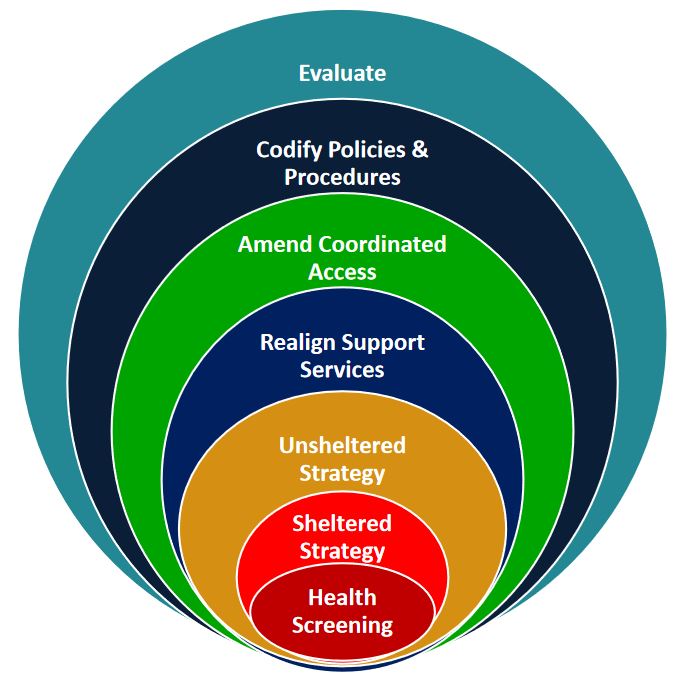The Pandemic Response and Recovery Toolkit for Homeless System Leaders in Canada was created to support leaders through the next steps of their community’s response and recovery for both people experiencing homelessness and in supported housing programs.
 As COVID-19 gripped the country in March, communities across Canada adjusted their homelessness service delivery to help ‘flatten the curve’ and respond to the threat of the pandemic. While it’s still not over, the Pandemic Response and Recovery Toolkit for Homeless System Leaders in Canada is intended to assist system leaders to plan and navigate through the next steps in their community’s response and recovery.
As COVID-19 gripped the country in March, communities across Canada adjusted their homelessness service delivery to help ‘flatten the curve’ and respond to the threat of the pandemic. While it’s still not over, the Pandemic Response and Recovery Toolkit for Homeless System Leaders in Canada is intended to assist system leaders to plan and navigate through the next steps in their community’s response and recovery.
The toolkit outlines phases and action steps to help with planning, implementation and evaluation of pandemic response and recovery activities in communities. It also contains a compendium of resources to help homeless sector leaders along the way. It was sponsored by the Canadian Alliance to End Homelessness and prepared by OrgCode Consulting Inc.
Access the Pandemic Response and Recovery Toolkit by clicking here.
Many communities are in the post-peak period of the pandemic, but it doesn’t mean it’s over. System leaders must remain vigilant, according to the toolkit, and prepared to reactivate stringent prevention and containment protocols within homelessness service environments for any additional COVID-19 surges.
“This could be a time of doom and gloom,” the toolkit states. “But there is a silver lining. With innovation and the courage to capitalize on emerging opportunities, the homelessness response and housing support system may emerge from this situation stronger and better than before the pandemic.”
The toolkit is divided into several parts including a pandemic response and recovery framework, how to operationalize and customize the framework, along with the checklists, tools, and resources to support that work. It provides the necessary steps and information to ensure a community has the plan it needs to respond to the fluctuations of this pandemic.
It also encourages system leaders to examine their community’s response to date, make continuous improvements, and collect and understand lessons learned so far so that activities and strategies can further adjust while remaining focused on preventing, reducing and ending homelessness in the post-pandemic era.
The toolkit will continue to be updated monthly through September as further information becomes available.
The toolkit is available on the cnh3.ca/resources site under “Response & Recovery Frameworks.”
